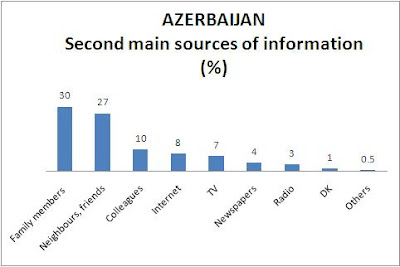By Davit Mzikyan
[Note: Social Science in the Caucasus is publishing the work of six young researchers who entered CRRC-Georgia’s Junior Fellowship Program (JFP) in February 2015. This is the second blog post in the series. Click here to see the first blog post.]
In the late 1990’s together with the boom in digital and information technologies, the concept of e-government first began to take shape. Since then, e-government has spread throughout the world. In 2007, e-government was launched in Georgia with the creation of the government commission supporting e-governance development, and in 2010, the Data Exchange Agency (DEA) was created under the Ministry of Justice of Georgia. One core function of the DEA is to assist in the development of e-governance. Since, the state has implemented a significant number of e-government projects including my.gov.ge, hr.gov.ge, eauction.ge, rs.ge. Looking to international rankings, progress is visible. According to the UN’s E-government development index, Georgia rose from 72nd place in 2012 to 56th in 2014.
E-government in Georgia will, of course, continue to develop, but, at the same time, it should be useful and efficient – to a certain extent, herein lays a problem. While the government develops and improves its digital services and communications through information and communications technology, a large share of the population – potential e-citizens – lacks knowledge of how to use computers, as well as knowledge of how to use the internet. Survey data from the 2013 Caucasus Barometer (CB) shows that roughly half of the county’s population (52%) has no basic knowledge of how to use a computer. This means that in all likelihood, these people are unable to use e-government services, or other means of communication with governmental bodies via the internet. In many ways, e-government without more or less advanced computer users is like a government without a population – its existence is pointless unless there are people who will benefit from its services. This blog post looks at the potential and perspectives of e-governance in Georgia considering self-assessed level of knowledge of computers by age and settlement type.
Stemming from the common belief that young people are good with technology, while the older generation has trouble using it, one might think that older people are the only group in society which has no basic knowledge of computers. While CB data confirms this impression to a certain extent, as 86% of those 56 and older report little to no knowledge of computers, it also shows that 24% of 18-35 year olds report having no basic knowledge of how to use a computer. Although the majority of 18-35 year olds (76%) reports knowledge of the computer, 14% of them report only a beginner’s level of knowledge. Still, young people are likely most capable of using e-government services, compared with older populations.
In addition to age, knowledge of computers differs by settlement type as well. CB 2013 shows that almost half (46%) of the population of urban settlements outside the capital and 67% of the rural population do not know how to use a computer, compared to 31% of capital residents. Distribution of internet access also falls along these lines. According to the Institute for Development of Freedom of Information’s Statistics of Internet Users in Georgia – 2013 of 434,969 wired internet subscriptions in 2013, 273,396 were in Tbilisi. Imereti region comes in second with only 42,198 subscriptions. According to GeoStat, the population of Tbilisi in 2013 was 1,171,200 while the population of Imereti was 703,900. Therefore, Tbilisi had approximately 233 wired internet subscriptions per 1000 inhabitants, compared with only 60 in Imereti. Hence, in order to improve access to e-governance, the greatest amount of work will be spreading knowledge and access to technology in the populations of villages and urban settlements outside the capital. This is particularly important as residents of the capital can much more easily communicate with governmental bodies or receive services by visiting ministries or agencies, but for citizens living outside the capital there are fewer alternatives.
Nevertheless, in every settlement type, 18-35 year olds report more advanced knowledge of computers than those over 36 years old. In the capital, only 11% of young people report no knowledge of computers compared with 13% of youth residing in urban settlements outside the capital and 43% in rural settlements. Still, in all settlement types, knowledge of computers decreases with age.
This blog post has looked at e-government in Georgia in light of reported knowledge of computers. Despite the fact that the older generation generally knows less about computers and therefore has less access to the services that e-government provides, the young generation often has enough knowledge of computers to use its services. Considering that this young generation will replace the older one, it appears that in the future, with increasing knowledge of computers, e-government will be more widely used in Georgia. Nevertheless, compared to the capital, knowledge is lacking in other urban settlements and, especially, in rural settlements.
For more information, take a look at our earlier blog post on e-transparency in Georgia, or look through our data using the Online Data Analysis tool.








